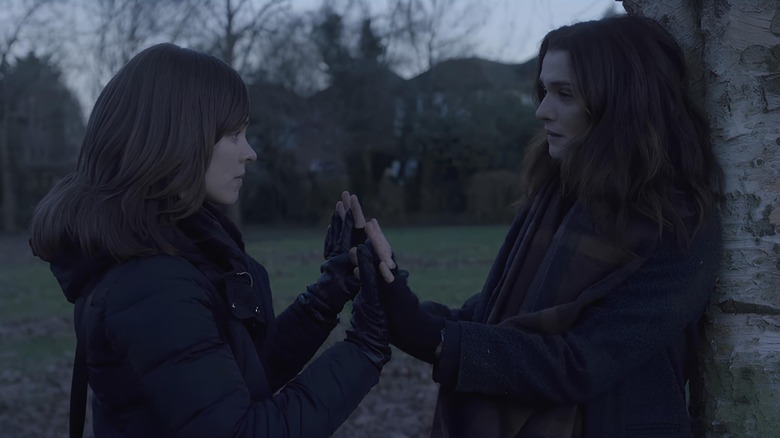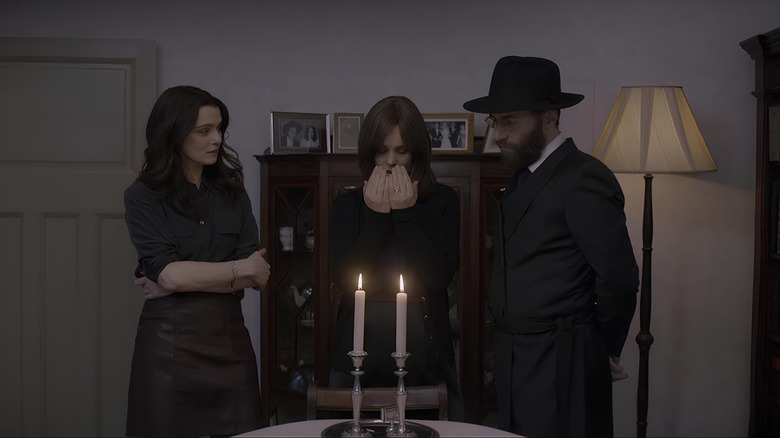The Steamy Drama With Multiple Award Nominations You Can Stream On Netflix Right Now
Chilean filmmaker Sebastián Lelio received critical acclaim for his 2013 film "Gloria," as well as 2017's Academy Award-winning "A Fantastic Woman" in 2017. With "Disobedience," his English-language debut, Lelio completed what was referred to as his "trilogy of women." "Disobedience" also stands apart as a queer Jewish love story that ranks among Looper's favorite romances of all time.
Based on Naomi Alderman's 2006 novel of the same name, "Disobedience" takes place in the Orthodox Jewish community of North London. When the community's head rabbi passes away, his daughter Ronit (Rachel Weisz), who had left for a more secular existence years earlier, returns to London from New York City.
There, she reunites with her good friend Dovid (Alessandro Nivola), as well as his wife Esti (Rachel McAdams). The pair's covert glances give way to the revelation that Ronit and Esti once had an illicit sexual relationship — something the entire community was privy to. What follows is a critically acclaimed film that examines the tension between one's community and oneself. "Disobedience" earned over two dozen award nominations, including a win from the British Independent Film Awards.
Disobedience captures an illicit relationship
"Disobedience" is a film that, like a central tenet of Judaism itself, asks a lot of questions — about identity, grief, and repression. But the focal point of "Disobedience" is the relationship between Ronit and Esti, and the two women approach each other at first warily, then voraciously. For their illicit hotel room tryst, director Sebastián Lelio approached it as a choreographed sequence. "I was a believer that the love scene, the sex scene, was the heart of the film," he told Vulture. "I was talking about that all the time."
Lelio challenged himself to craft a highly erotic scene without using nudity as a crutch. "I was obsessed with the question, Is it possible to reach a high level of eroticism without showing skin?" In a conversation with Rachel McAdams for Lenny Letter, Rachel Weisz confirmed that the scene gains its power by what isn't shown. "He wasn't interested in seeing breasts and bottoms and nipples," she recalled. "It was about our faces full of emotion and then the mystery outside the frame." Lelio got creative in other ways; it was he who thought to include the now-infamous moment in which Ronit gently spits in Esti's mouth.
"Is it graphic?" asked Jada Yuan in a separate piece for Vulture. "Yes. Is it sexy and gorgeous? Yes, again. Is it a tad male-gaze-y? Sure." She continues, "Most of all, though, it's moving...Their only desire is to give pleasure to and receive it from one another, and they've been stymied for so long by circumstances."

